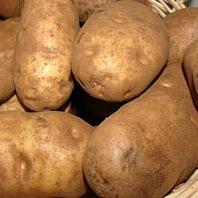
Scientists working to decipher the DNA code of the potato, a vital step in breeding new varieties, say a breakthrough may come as soon as this year.
Work on the genome sequencing project is being coordinated by Professor Richard Visser, chairman of plant breeding at the Netherlands-based Wageningen University and Research Centre's Department of Plant Sciences.
US-based molecular genetics specialist KeyGene and leading New Zealand science company Plant & Food Research are also involved in the project as part of the international Potato Genome Sequencing Consortium, which aims to complete the process by the end of 2010.
'This would provide insights into the genetic control of important attributes such as disease resistance, nutritional value, colour and flavour,' says Iona Boase, senior communications advisor at Plant & Food Research.
The Plant Sciences department of Wageningen UR is applying KeyGene’s Whole Genome Profiling technology to construct a high-quality physical map of potato. This will be used to create a superior genome sequence assembly for the potato in collaboration with the consortium.
The potato is the fourth most-important food crop in the world, with a current annual global production of 300m tonnes, of which 80 per cent is grown in Asia and Europe.
Christian Bachem, project leader at Wageningen UR, says the quality of the physical map will determine the quality of the sequence of the complete potato genome. “The collaboration with KeyGene will help us to reach our objectives faster and deliver a high quality genome sequence that will form the basis for future potato research,' he adds.
Edwin van der Vossen, head of KeyGene’s Field Crop unit, says the company's Whole Genome Profiling has already been proven in several vegetable crops with genome sizes ranging from 450–2,600 Mbp.
'We are pleased that the long-term collaboration between the Wageningen UR Plant Sciences department and KeyGene now allows us to apply our Whole Genome Profiling technology to the potato,' he says.



